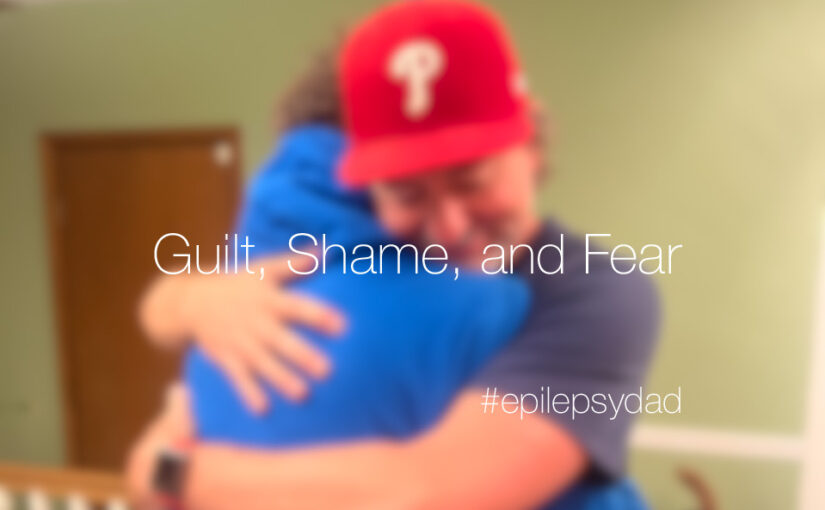I recently stumbled upon a reference to how cultural anthropologists categorize societies based on how they control behavior in those societies as guild-shame-fear.
I pulled these descriptions from the always dependable Wikipedia:
Guilt Society
In a guilt society, control is maintained by creating and continually reinforcing the feeling of guilt (and the expectation of punishment now or in the afterlife) for certain condemned behaviors. The guilt worldview focuses on law and punishment. A person in this type of culture may ask, “Is my behavior fair or unfair?” This type of culture also emphasizes individual conscience.
Shame Society
In a shame society (sometimes called an honor–shame culture), the means of control is the inculcation of shame and the complementary threat of ostracism. The shame–honor worldview seeks an “honor balance” and can lead to revenge dynamics. A person in this type of culture may ask, “Shall I look ashamed if I do X?” or “How will people look at me if I do Y?” Shame cultures are typically based on the concepts of pride and honor. Often actions are all that count and matter.
Fear Society
In a fear society, control is kept by the fear of retribution. The fear worldview focuses on physical dominance. A person in this culture may ask, “Will someone hurt me if I do this?”
I was interested in the topic because I have lived at the intersection of all three.

Until sixth grade, I went to an old-school Catholic school and church, where the nuns still wielded rulers as weapons, and God was always watching and never approving. I can still picture one of the sisters with terrible arthritis, and her hand contorted perfectly to wrap around one of the long wooden chalk sticks. I remember feeling that everything I did was a sin, deserving of punishment, and wrong, deserving of exclusion.
I also grew up in a household with a single, frustrated, angry mother and an older, equally angry sister. I spent a lot of time trying to be and keep everything perfect to avoid getting punished, always fearful of the hand and the wooden spoon.
I thought this was normal. As I got older, the voice inside my head would take over for the nuns, my mother, and my sister, reinforcing the messages of guilt, shame, and fear.
It wasn’t until after I was married and we had our son (and a lot of therapy) that I started to see and understand that my childhood was traumatic and how it affected me as an adult.
Guilt is what kept me feeling wrong.
Shame is what kept me feeling alone.
Fear is what kept me feeling small.
The behaviors that I developed to help me survive in a state of guilt-shame-fear became toxic in my adult relationships, closing me off to the people I desperately wanted to be close to and spreading out to every aspect of my existence: relationships, love, intimacy, sexuality, self-esteem, friendships, goals, expectations, happiness, comfort, safety.
What got you here won’t get you there…
I am on a journey of recovery and untethering myself from my old patterns and beliefs. However, as I go through this process, I want to ensure that my son has a different experience. While we’re not religious, and there (probably) aren’t nuns waiting around the corner, the most likely transmitter of the guild-shame-fear burden is me.
I still wrestle with my lingering expectations of perfection and fear that I will disappoint the people around me. I still feel the grip of guilt and shame for my actions and who I am.
While I am very conscious of the words I use when I engage in these topics with my son, it’s not only the words that influence how he interprets these messages. It’s how he sees my relationship with these feelings that will demonstrate what his relationship with the feelings should be. Even when I think I successfully internalize or hide these feelings, I know I am not that good of an actor. Their effects are visible on my face, body, voice, and how I present myself to the world.
In many ways, the work my wife and I have done has created a very different environment for our son than either of us had. I can see that in how he interacts with the world. He isn’t fearful like I was and is one of the bravest people I know. He feels guilt when he does something wrong, not thinking everything he does is bad like I did. And his relationship with shame is much healthier than mine, and he can also feel dignity and positive self-esteem.
It’s not perfect, and we’re continuing to equip ourselves with the knowledge and tools we need to continue to develop a healthy relationship with these feelings in ourselves and him. But I see such a difference in him compared to what it was like for me growing up, and seeing that difference gives me hope that I can continue to make changes for myself, too.


